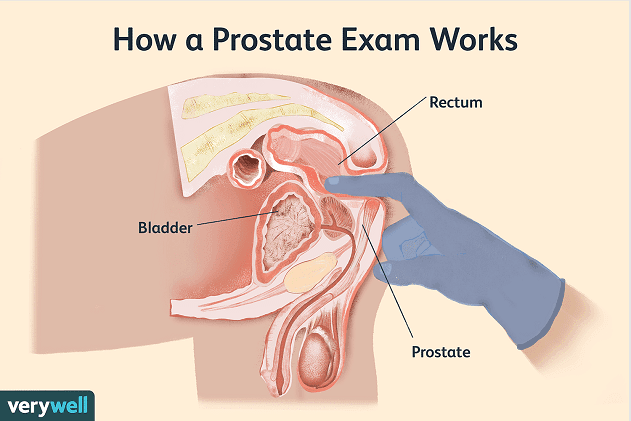
When men hear about a prostate exam, the first feeling is usually anxiety. Many think of it as uncomfortable or even embarrassing. However, understanding what happens, why it’s important, and things to do before a prostate exam can reduce fear and ensure accurate results.
This article will walk you step-by-step through everything you need to know — from hygiene and dietary preparation to understand why you need a prostate exam mental readiness and follow-up care. Written with experience, expertise, authority, and trust (EEAT), this guide ensures you feel fully prepared.
Table of Contents
TogglePersonal Details Table: Prostate Exam Essentials
| Detail | Information |
|---|---|
| Medical Name | Digital Rectal Exam (DRE) |
| Purpose | Detect prostate enlargement, cancer, or irregularities |
| Recommended Age | 45+ (earlier for those with family history) |
| Duration | 5–10 minutes |
| Preparation Needed | Light meal, empty bladder, hygiene |
| Discomfort Level | Mild, temporary |
| Follow-up | Depends on results; may include PSA test or imaging |
Why a Prostate Exam Matters
The prostate is a small gland in men that plays a role in semen production. Conditions like enlargement (BPH), infection (prostatitis), or even need to know cancer can go unnoticed without regular check-ups. Early detection saves lives.
Things to Do Before a Prostate Exam
Maintain Good Hygiene
-
Take a shower before your appointment.
-
Use mild soap to clean the anal and genital area.
-
Fresh underwear helps you feel more confident.
Empty Your Bladder
-
A full bladder can make the exam uncomfortable.
-
Urinate just before your exam.
-
This also helps the doctor palpate the prostate more effectively.
Eat a Light Meal
-
Avoid heavy, greasy, or spicy food before the exam.
-
Stick to fruits, vegetables, or a small balanced meal.
-
Being too full may cause discomfort during the procedure.
Avoid Alcohol and Caffeine
-
Both can irritate the bladder and prostate.
-
Stick to water or herbal tea.
Relax and Breathe
-
Nervousness is normal, but tension can make the exam harder.
-
Practice deep breathing before and during the exam.
-
Remember: the exam lasts only a few minutes.
Know Your Medical History
-
Be ready to tell your doctor about:
-
Urination problems
-
Family history of prostate cancer
-
Medications or supplements you take
-
-
This context helps your doctor interpret the results.
Wear Comfortable Clothing
-
Loose pants and underwear are ideal.
-
Avoid complicated belts or tight clothing.
Avoid Sexual Activity Before Exam
-
Some doctors recommend avoiding ejaculation for 24–48 hours.
-
This prevents temporary changes in prostate size or tenderness.
During the Prostate Exam: What to Expect
-
The doctor will ask you to stand, bend forward, or lie on your side.
-
A lubricated, gloved finger will be gently inserted into the rectum.
-
The prostate is checked for size, shape, and abnormalities.
-
Mild pressure or slight discomfort may be felt, but it should not be painful.
After the Exam: Things to Keep in Mind
-
Mild soreness may occur but fades quickly.
-
Report any unusual bleeding or pain to your doctor.
-
Discuss results and possible further tests (like PSA blood test).
Lifestyle Tips to Support Prostate Health
-
Eat a balanced diet (tomatoes, leafy greens, fish, nuts).
-
Exercise regularly.
-
Limit processed foods and alcohol.
-
Stay hydrated.
-
Schedule routine checkups.
Common Myths About Prostate Exams
| Myth | Reality |
|---|---|
| It’s very painful | It’s usually just mildly uncomfortable |
| Only old men need it | Men 40+ (earlier with risk factors) should consider it |
| It affects masculinity | It’s purely a medical procedure |
| Blood tests are enough | PSA tests help but DRE adds important physical findings |
FAQs: Things to Do Before a Prostate Exam
Q1. Should I fast before a prostate exam?
No, fasting is not necessary. Just avoid heavy meals.
Q2. Can I drive myself after the exam?
Yes, the exam has no sedatives or recovery time.
Q3. Is it normal to feel embarrassed?
Absolutely. Most men feel nervous, but doctors perform this routinely.
Q4. Do I need to shave or groom?
No. Just basic hygiene is enough.
Q5. How often should I have a prostate exam?
Generally, once a year after age 50 (or earlier for high-risk groups).
Conclusion
The best things to do before a prostate exam are simple: maintain hygiene, eat light, empty your bladder, relax, and follow medical advice. This small step can help in early detection of serious conditions, ensuring better health outcomes.




